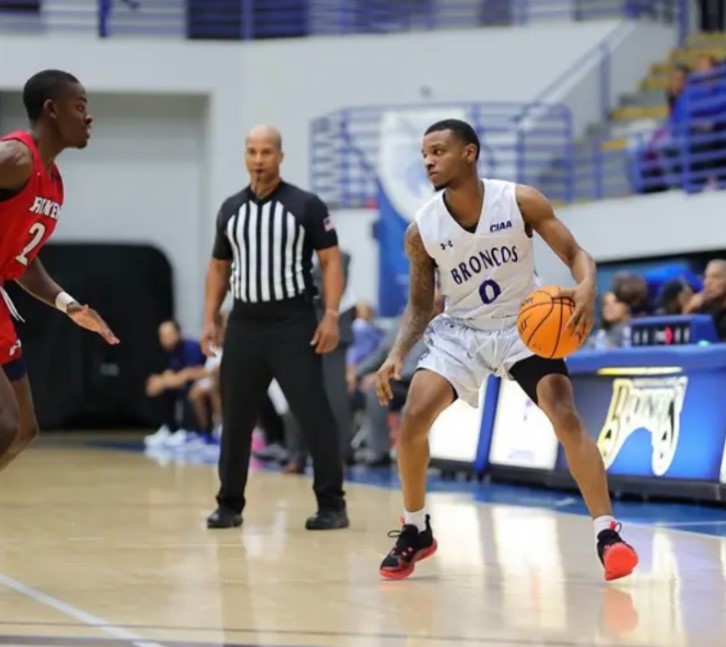Women in Tech
To learn about more women's inspiring STEM careers, check out these videos from MetLife's recent Triangle Tech X conference.
You could say that serving others is in Tim McClain’s DNA.
Before joining the corporate world, Tim spent 11 years in the U.S. Army where his military service culminated by becoming a U.S. Army Ranger and serving as company commander in the largest Special Operations communications unit in the world.
With MetLife since 2014 and based in Cary, North Carolina with Global Technology and Operations, Tim currently manages our Cybersecurity Operations Center at the GOSC in India.
In addition to work and his family, every year between November and March, you can find Tim on the hardwood officiating basketball games throughout the southeast United States.
A father’s influence
"We played basketball as kids,” he says. “My dad was an all-state high school basketball player and excelled in baseball. He went on to play professionally for the San Francisco Giants.”
As a college sophomore, Tim worked part-time in a fast-food restaurant. “I got tired of the grease and messy kitchen,” he recalls. When his father, a former Parks & Recreation superintendent, suggested he go to the department and ask about refereeing, he did just that. “I started out with middle and high school JV teams and really enjoyed it and, the officiating experience helped me develop my leadership skills.”
Tim was commissioned as a second lieutenant in the Army right out of college. “There isn’t much time to referee n the Army, especially when you’re stationed overseas and serving multiple combat tours.”
Back in the swing
When he returned stateside – to what was then Fort Bragg (now Fort Liberty), Tim reconnected with his officiating network and got back in into the swing of things. “I started working my way up, eventually selected to join college conferences in the southeast.”
Requirements to become a certified referee vary depending on the level you aspire to officiate. “I wanted to be a major college basketball official,” he says. At that level, he needed to attend numerous summer camps, score well on exams and work his way up from the junior college level to Division III, Division II and finally up to Division I.
Today, many who officiate in Div. I do so on a full-time basis. “There’s very little opportunity these days unless you are able to travel all over the country for 70-90 game assignments per season,” Tim explains. “That said, I rarely work Div. I games, but rather, mostly Div. II and III.”
Time well managed
“You have to manage your time well,” Tim emphasizes. “I probably officiate about 60-80 games per season. Travel to game locations, especially on weekdays, can cause some grief if you don’t plan well in advance. I flex my work hours during the season, 6:30 a.m. – 3:30 p.m. most days, to make it to games; sometimes I do take a ½ day of PTO to compensate for the travel time.”

This year, Tim’s season was – for a very, very good reason – extended through mid-March. You see, based on his record of assignments with no issues, great moments of game management and positive comments from coaches and athletic directors about his balanced adjudication of the rules, he was selected to officiate the North Carolina High School State Tournament.
Juggling act
In terms of work-life balance, “it’s a juggling act for sure,” Tim says. By adopting a mindset that refereeing is relatively short, November – February each year, “I’m able to convince myself – and my family – that three-and-a-half months a year is not that bad. As long as I communicate my game schedule and time planned with my family clearly, it’s relatively easy to get everyone on board.”
Tim is also adamant about keeping his colleagues apprised of his schedule during the season.
A win-win
Officiating is a win-win for everyone – players and referees – in Tim’s eyes. “I’ve always been passionate about helping underprivileged and underrepresented communities,” he says. “When it comes to officiating, we (unknowingly at times) help at-risk kids and young adults learn the value of sportsmanship, teamwork and leadership.”
The officials benefit, too. “It helps me stay in shape, mentally refreshed and burns off any work-related stress from the day,” Tim shares. “Serving your community is a civic duty in my opinion…and what better way to do that than to officiate sports?
To learn about more women's inspiring STEM careers, check out these videos from MetLife's recent Triangle Tech X conference.